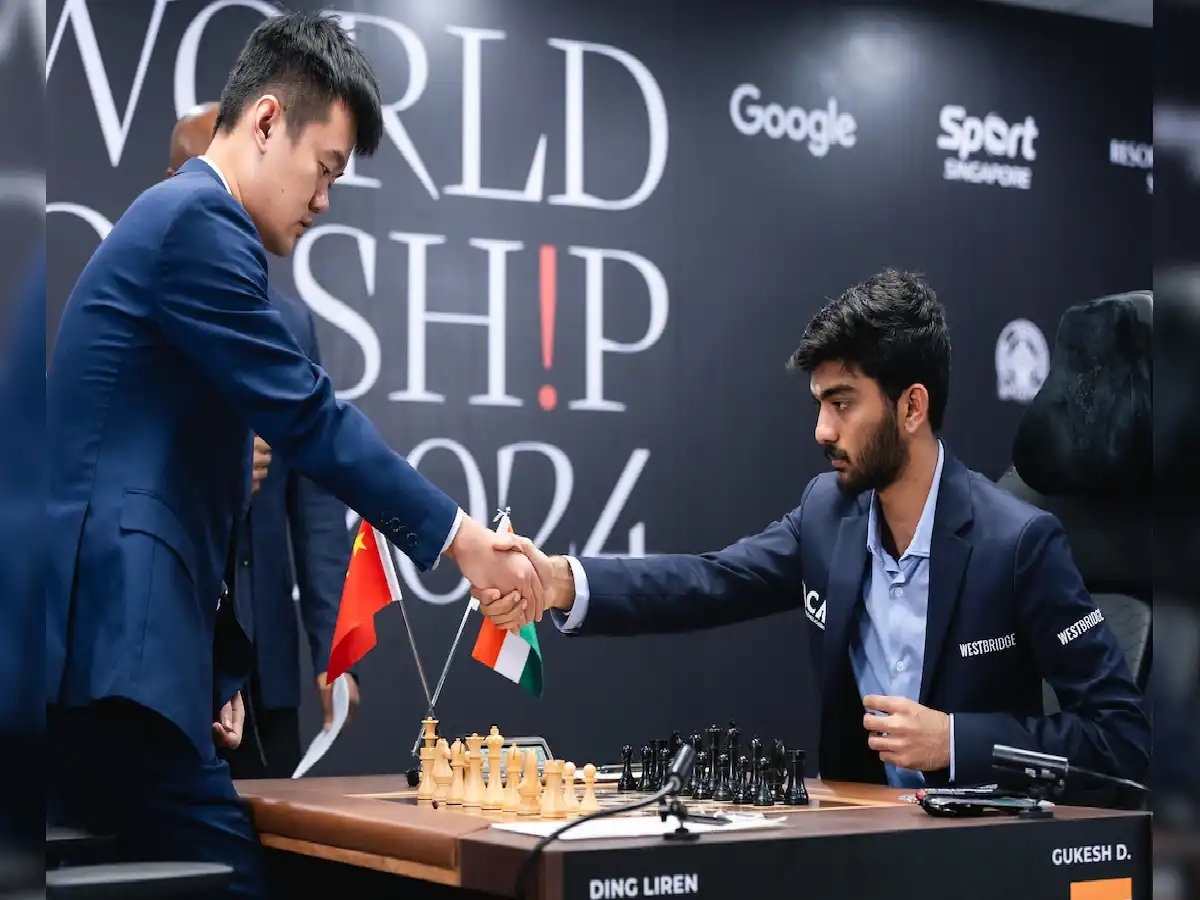On Wednesday, Indian challenger D Gukesh and Chinese reigning champion Ding Liren drew for the fifth time in a row in a tense eighth game of the World Chess Championship in Singapore, remaining level on points. The drawn match left both players with an identical tally of four points apiece, still short of the 3.5 points required to win the title. After 51 moves, the two players agreed to make peace. This was the sixth draw of the 14-round match.
Liren, 32, won the first game, while Gukesh, 18, won the third. The second, fourth, fifth, sixth, and seventh games all finished in draws. Liren chose not to take unnecessary risks and earned a draw in a difficult situation. The game lasted longer than four hours.
Given Liren’s missed opportunities in the match, it appeared that Gukesh would take it as well. There are only six more games left in the USD 2.5 million championship, and if there is a tie after 14 rounds, the winner will be determined by games played under faster time controls.
The next two back-to-back games could decide the outcome of the match. It was interesting that Gukesh chose not to aim for the draw first by repetition, which would have terminated the game much sooner. “I would have taken the draw if I thought I was worse, but I didn’t; I needed to be precise, and I missed one of his resources. I’m not sure I believe the situation has additional tricks,” Gukesh subsequently added.
“In the position where I did not repeat, I did not believe I was at much risk. I always felt that with his weak king and my strong pawn on b3, I should have played. I believed I could have a chance. But, certainly, it was just a misunderstanding of the position.
Liren used an English opening in his fourth white game, and Gukesh picked a variation preferred by Alexei Shirov. Obviously, Gukesh has something planned for every opening, and Wednesday was no exception, once again, Liren had to delve into a lengthy contemplation to counter the black’s opening notion.
The players were out of their preparations rather early in the game. Even with computer analysis, the next middle game was significantly more complex than the ordinary chess fan could have predicted.

